Welcome to another issue of The Newport Cornucopia where we dig through the newspapers archives for interesting news articles and adverts. All articles are posted verbatim and most headlines are original (headlines in quotes are my own).

Curious Accident at Newport
About 12.30 on Friday morning a haulier named Thomas Evans, in the employ Frank Thomas, Magor, was a taking a coal trolley over Newport Bridge when a large lump of coal fell over the trolley on to the wheel of a Bath chair ridden by a cripple, Frederick Carpenter, 3 Mill Parade, overturning the chair, and precipitating Carpenter into the road. He was taken home by Councillor Gower in a cab, and did not appear to be much injured.
— South Wales Argus, Saturday 2nd October 1897 (subscription required)
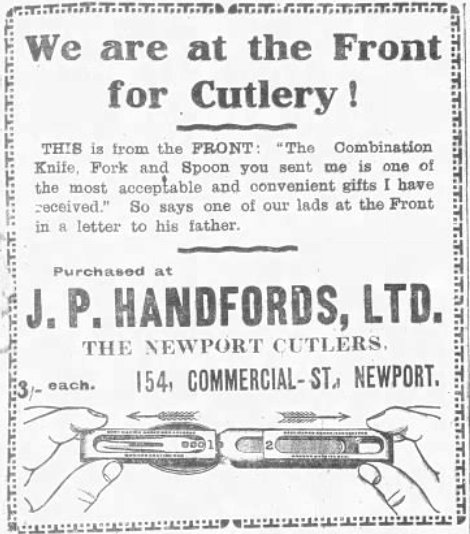
The Coldra Naval Hospital
An article published in November, 1918 discussed that there were once plans for The Coldra to be used as a naval hospital by the US that would cover Europe.
What the American Government intend with reference to the Naval Hospital to be established at The Coldra, Newport, by permission of Mr J W Beynon, is revealed in the minutes of the Electricity and Tramways Committee to be considered on Tuesday. The letter from the American Red Cross stated that The Coldra was intended to be used as the Chief American Naval Hospital in Europe, and inquired whether the Corporation would extend the electric light main to the house. The Borough Electrical Corporation reported that he had supplied the architects with an estimate of the cost, and pointed out that it would be much cheaper to install a plant on the premises. He understood that the application for extension of the main was now withdrawn. The action of the Engineer was confirmed. Newport is certainly to the front in this means of establishing good relations with the United States.
— South Wales Argus, Tuesday 5th November, 1918 (subscription required)

The Cry from Maindee
Sir, — I trust you will excuse my sending in yet another complaint from Maindee, but unless the street complained of is mentioned, I don’t believe (from past experience) our Councillors will take any notice whatever. Last winter Exeter-street was a perfect bog, and after the Sanitary Committee‘s attention was drawn to it, the nuisance was promised to be remedied. A little was done, but not much, and with no light, drainage, or pathway, I dread to think of the coming winter. All through the summer building material was extended halfway across the street, but now its worse, and the unfortunate resident to gain his house must plod along in the middle of the road ankle deep in mud, and, indeed, it requires an amount of practice before anyone can prevent himself stumbling over bricks or sand-heaps. I sincerely hope the Maindee representatives will see that the state of this street is not allowed to exist much longer.
Your, &c.
A RESIDENT
Exeter-street, Maindee, September 3rd, 1892
— South Wales Argus, Monday, 5th September, 1892 (subscription required)
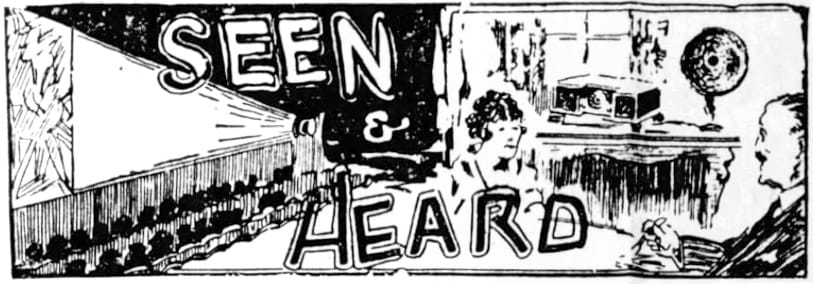
‘The Widening of Stow Hill’
It sometimes happens that a small alteration makes a great improvement. One seldom sees a better illustration than that which can at present be found on Stow Hill. A slice of the out-building of the old house so long tenanted by the late Alderman H.J. Davis is being removed to widen the hill at this very contracted and dangerous spot. It can easily be seen already that a very real improvement will be made, and one wonders that it was not taken in hand years ago. There is now not much to obstruct the road expect the awkward bend a few yards higher, but even the danger of that will be minimised by the alteration. Only a very special providence can explain the fact that serious accidents have not frequently occurred at this spot.
— South Wales Argus, Saturday 13th February, 1904 (subscription required)

‘Make an Example of Those Who Drop Orange and Banana Peelings’
Why do not our police authorities make examples of two or three of the innumerable thoughtless individuals who carelessly drop orange and banana peelings on the side-walks? There is, I believe, a bye-law in existence, but it is never enforced, although breaches of its terms may be witnessed any day in almost any part of the town. I heard a gentleman talk very feelingly on this point a few days ago, for the contact of his heel with a soft bit of banana rind led to the contact of his body with the hard paving, and caused him to travel toward all points of the compass at once. It is funny for the onlooker, but it may be serious for the victim, and it ought to be serious for the persons who make the mischief.
— South Wales Argus, Saturday 13th February, 1904 (subscription required)
‘People Who Can’t Pronounce Street Names’
When street names are fixed, in Newport or elsewhere, some consideration might be given to the people who will have to use them in speech and in writing. One wonders who supplied the wisdom which selected Agincourt, Ailesbury, Archibald, Courtybella, Corelli, Coverack, Libeneth, Portskewett, Trostrey, Wolseley. I am positive that people live in some of these streets who cannot spell or even pronounce, the word that is essential to the correctness of an address. In one instance a poor woman could not speak or write “Agincourt”. “Archibald” was selected as the nearest approach to what she said, and the assistance which she badly needed was delayed many days by the mistake.
— South Wales Argus, Saturday 27th February, 1904 (subscription required)
‘Malpas Road Flooded’
The high tide on Friday morning created quite an island sea at the bottom of Malpas Road, the meadows being covered in some places to a depth of two feet. Had there been a storm and heavy rain, disastrous floods would have followed. After the waters had subsided, flocks of birds were to be observed feeding upon the deposits left by the tide.
— South Wales Argus, Saturday 5th March, 1904 (subscription required)

‘Turn Newport Castle into a Museum’
An interesting letter from a resident disappointed about Newport Castle being turned into a brewery and suggested that it be turned into an attraction. Interestingly some of the things suggested did eventually get introduced such as a pathway behind the castle and a green but these have subsequently gone.
DEAR SIR, — A writer has made an excellent suggestion regarding the future of the ancient castle on the West Bank of the Usk, to the effect that the castle should become the property of the town, and that a museum be established in connection therewith. The idea might be extended. That an historic ruins should be turned into a brewery is somewhat of a disgrace to the inhabitants, and is probably the only example of such ridiculous metamorphosis in the kingdom. But surely the price of its reclamation and redemption is not prohibitive. If thousands of pounds can be expended in a very necessary enterprise for the recreation of the people outside the town, surely a much lesser sum would not be wasted in providing recreation and amusement of an educational and refining character in the heart of the town. What would Weston do with such a pile? What would not Cardiff do with it? Sleepy Newport is noted for the grand opportunities it has lost, and is now losing. Chepstow, Caerphilly, and Raglan can turn an honest penny by no other means than veneration for the past of their decaying walls. It is reserved for Newport to demonstrate its utter contempt for an age or chivalry. My proposals are as follows: Purchase the entire castle with as much surrounding ground as practicable, thoroughly renovate enough for modern requirements, stock the interior with pictures, interesting relics of the past, curios of the present, examples of local industrial products, and throw the place open to the public. The museum at the Free Library might be utilised to form a nucleus of something more extensive at the castle. A reading-room might also be added. In other towns, with fewer inhabitants, a popular rendezvous of one sort or another is generally found. A quay wall might be erected on the river side, and the intervening space between that and the castle filled up, forming a splendid promenade from the bridge to the boat-house. Ample ground might be claimed to form a garden sufficiently attractive. A band in the garden would popularise the resort for visitors and the inhabitants west of the Usk, and those at Newport-ultra-pontem. One word of warning, the Bridge Hotel license should not be resuscitated adjacent to the Newport Castle grounds.
W. WALLACE GRANT
Roseville House, Newport-on-Usk
1st September, 1892
— South Wales Argus, Monday September 5th, 1892 (subscription required)

Valentine’s Day

Dying Out?
St Valentine’s Day is dying out, that is to say the observance of it. Post-office officials tell us that very little extra trouble is given them on the 14th, and that every year decreases the amount of labour incurred through the custom of sending pretty little mementoes — and ugly takes-off — through the post. If it were not for the loss of an industry, one would hardly regret this fact. Too frequently St Valentine is badly abused, as one young lady at least in Newport can testify. She received no less than four exceedingly ugly pictures, and three others were tendered by the postman upon which the postage had not been prepaid, and which she was wise enough to refuse to take in. It seems to me that a good many “valentines” are sent not merely in fun, but out of spite and malice, therefore, as I said before, the falling off in the observance of the day is perhaps not to be regretted.
Newport Post Office was troubled to but a small extent this year, but the few extra articles that passed through the officials’ hands included monkeys on sticks, a doll or two, and an old hat. Verily, such an outrage upon St Valentine is enough to make him turn in his grave.
— South Wales Argus, Saturday 17th February, 1894 (subscription required)
Some Queer Things That Passed Through The Post At Newport
Anxious to know something of the extent to which the custom of sending valentines prevailed this year, an Argus man called at the Newport Post-office on Thursday, and was introduced to the courteous head clerk, Mr T.C. Cooper.
“Could you give me,” queried the reporter, “some particulars passing through your office yesterday, as compared with the same day in other years?” — “Oh, dear me,” replied Mr Cooper, “I really couldn’t say just at the moment, but the thing is practically dead.”
“But what about the strain on your staff?” — “There is hardly any extra work. Only one man extra was required yesterday.”
“I was told some very extraordinary things went through yesterday?” remarked the representative. — “Nothing but a few monkeys up sticks, a doll or two, and an old hat, I believe. Just what silly people send to one another. Twenty years ago the correspondence used to tax us as much as Christmas does now. Then it was a very large affair, and all sorts of things went through the post, but not now.”
“You find Christmas the heaviest pull now?” — “Yes, why we are doing extra work even now, conseqeuent upon the rush of last Christmas. But the Valentine business is dead, never to return again, I hope.”
— South Wales Argus, Saturday 17th February, 1894 (subscription required)
‘Rapidly Becoming Forgotten’
St Valentine’s Day is rapidly becoming forgotten. Even I, who had usually taken a lively interest in the event, had to consult an almanac this morning to discover the exact date. The fact is, if it were not for the artistic (!) valentines displayed in certain shop windows, the day would certainly be more honoured in the breach than the observance. I don’t know what we should be any the worse for that, expect that an industry would suffer.
— South Wales Argus, Saturday 11th February, 1899 (subscription required)
‘Rapidly Dying Out’
This is St Valentine’s Day. But for the display of humorous (?) coloured prints in the stationer’s shops we should not have been aware of the fact. The valentine is rapidly dying out.
— South Wales Argus, Thursday 14th February, 1901 (subscription required)

'No to a Lord Tredegar Statue'
SIR, — I see it mooted to-day that a statue of Lord Tredegar should be erected in the Park for the gift of the land. I for one protest against it, because of the excessive and ruinous ground rents that are ground out of shopkeepers in the main streets. I will venture to say that before the trees will grow to any size one half the shopkeepers will be bankrupt. A few can stand it, but the bulk cannot; they can't do business to pay the amounts demanded.
As to a statue, put one of Mr Mordey under the projection at the upper lodge, as a standing monument of the economical use of space.
Your truly,
VERA X
Newport, Feb 13, 1894
— South Wales Argus, Wednesday 14th February, 1894 (subscription required)

'Shop Assistant Complains About Abusing Early Closing Rules'
DEAR SIR, — With your kind permission, I would draw the attention of the secretary of the Shop Assistants' Union to the fact that the early closing movement in Newport has become a failure in many respects. First of all, take the lower part of Commercial-road, and you will find that there is not a single establishment in this neighbourhood which closes at the appointed time. Who is to be blamed for the late hours which we, as assistants, are subject to? It may be attributed to the inactivity of our Executive Committee, who have done practically nothing to carry out the necessary work entrusted to their care on our behalf. It is a well known fact that some months ago, the assistants subscribed liberally to the funds of the Union, leaving a handsome balance in the hands of the secretary, to utilise it for no other purpose than the best means of bringing about early closing to a success.
I can honestly say that almost every assistant in Newport is prepared to attend a public meeting to consider the best means of making early closing a fact, and not a sham. We have been anxiously waiting to know whether the Union is dead or alive, as we cannot trace a single move on its part to try and better our condition in any shape or form. Is there not sufficient stamina in our young men to come forward and make a bold move in the matter? If there is, let them come forward, and hundreds will follow, adding strength to our weakness. Let us show the public that we are up and doing, and success will crown our efforts.
Yours truly,
BRYNDERWEN
Newport, January 31st, 1894
— South Wales Argus, Thursday 1st February, 1894 (subscription required)

Said He Would Pay A Quid For Her
At Newport Police Court this morning, Catherine Vickery was summoned for assaulting Mary Ellen Cochlin, a child, by throwing the contents of a teapot over her head. William Basham deposed to seeing the act committed. It was done out of spite to the child's mother. There was a cross summons brought by the defendant in the previous case against the mother and father of the child. The father, so Catherine Vickery said, came to her door and said he would pay a quid at the Town-hall for her. A dispute followed. All the parties were bound over to keep the peace for three months.
— South Wales Argus, Wednesday 14th February, 1894 (subscription required)
Stealing a Toasting Fork
Catherine Glasham, of Friars' Fields, was charged with stealing a toasting-fork, from Mr John Stewart, landlord of the Bush Inn, who said, on Saturday night, prisoner was in his tap-room; when, from information he received, he sent for a policeman. PC Pratten came, and he gave her into custody. She had a toasting-form under her shawl, and when it was taken from her, she said she thought it was a pipe. He had lost several articles from that room lately. Sarah Mockford, servant to the prosecutor, said she was toasting bread, and in five minutes afterwards missed the fork, and then saw the prongs of the fork under prisoner's shawl. She gave information to her master. PC Pratten proved apprehending prisoner, as she came out of the house, and found the fork in her hand, under her shawl. He asked her what she had; and she replied that it was her own, and was a pipe. Committed for trial; bail accepted.
— Monmouthshire Merlin, Saturday 27th January, 1854
'7-Year-Old Caught Stealing Coal; Police Told To Capture the Bigger Boys'
A little boy, about seven years of age, was charged with stealing coal. The Mayor impressed upon the policemen to be more energetic in capturing the bigger boys. Discharged.
— Monmouthshire Merlin, Saturday 27th January, 1854
'Man Whips Boy for Not Selling Him Newspaper'
Thomas David, of St Mellon's, was charged with assaulting John Carmody, a lad who carries about newspapers. Because the boy would not sell him a Star of Gwent for 2d., he thrashed the lad and pushed him down into the hedge, tore his clothes and horse-whipped him. Fined 20s. and costs. Paid.
— Monmouthshire Merlin, Saturday 27th January, 1854
Betting Prosecution
Francis Smith, Power-street, was summoned at Newport, on Friday, for loitering in Shaftesbury-street for the purpose of betting, receiving bets, and settling bets. Defendant pleaded guilty to settling bets. Mr Treharne Morgan, from the Town Clerk's office, prosecuted.
PC Bailey saw two women and three men approach defendant and hand him something wrapped in a paper. Later, witness saw Smith with a pocket-book in his hand, and on taking him to the Police Station found that he had £1 in gold ,£4 14s 9d in silver, a number of football coupons, and some sporting papers in his possession. Witness did not see defendant settling bets.
Defendant pleaded for leniency, and stated that he had been very unwell. He was formerly a glass worker. He promised to give up street betting. A fine of £5 was imposed.
— South Wales Weekly Argus, Saturday 7th October, 1911 (subscription required)
‘12 Strokes from the Birch for Stealing Ginger Beer’
Dennis Sweeny (10) was charged with stealing three bottles of ginger beer, the property of Robert Durand. Prisoner pleaded guilty. Ordered to be imprisoned for one day, and to receive 12 strokes from the birch.
— South Wales Daily News, Saturday 7th September, 1872

Baptizing in the Ebbw
This novel and picturesque ceremony was performed on Sunday afternoon last, in the river Ebbw, adjacent to the old bridge on the Cardiff road and the beautiful park of Sir Charles Morgan, when five young females and four males were baptized and received into the Baptist church, by immersion. The venerable officiating minister. the Rev. Thomas Morris, arrayed in his long black robes and velvet cap, presented, amid the converts in their flowing garments by the water’s edge, a prominent and striking feature in the romantic gathering while the dense crowds of persons who “went out to see” the ceremony, crowded on the old bridge parapets, on the trees, on the green sward of the park, on the banks of the river, and wherever a footing could be obtained the wild melody that arose from the singers beneath the shadow of giant tree like the music which echoed from the lips of Covenanters long ago in the caverns and fastnesses of their mountain land —the impassioned eloquence of the venerable minister, sounding loud above the roaring and rushing of the river at his feet; and anon the closing spectacle — the old pastor and his young converts, going down into the water together," like Philip and the Eunuch of old, and then the rite of baptism by immersion — all these bold and striking particulars filled up the picture. It was a scene full of wild beauty, dashed by a colouring of that strange character which seems to belong only to the realms of imagination. It was such a spirit stirring picture as the painter would love to transfer in glowing colours to his canvass; and, sooth to say, we did observe one who sat on a rude mass of rock on the margin of the river, looking with the intentness of a true disciple of Poussin on the scene before him, while he appealed gathering up all its characteristics in his “mind‘s eye.” We have since learnt that Mr. Mullock, the artist we have alluded to in the above sketch, has been retained to make a painting of the spectacle, for the purpose of publishing an engraving therefrom. We have seen the painting — which is now neatly completed—and it certainly is “done to the very life."
— Monmouthshire Merlin, Saturday 6th April, 1844


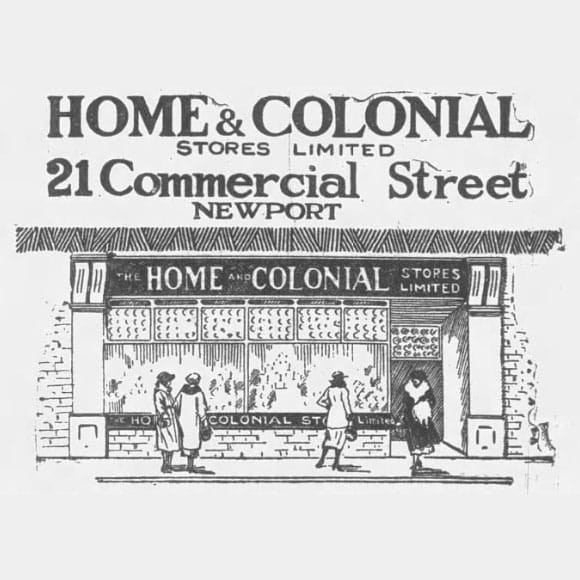
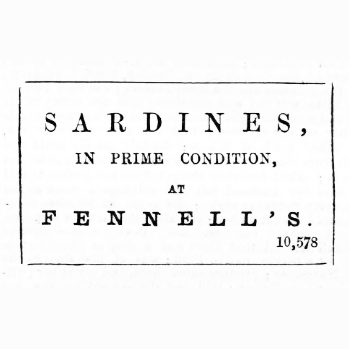
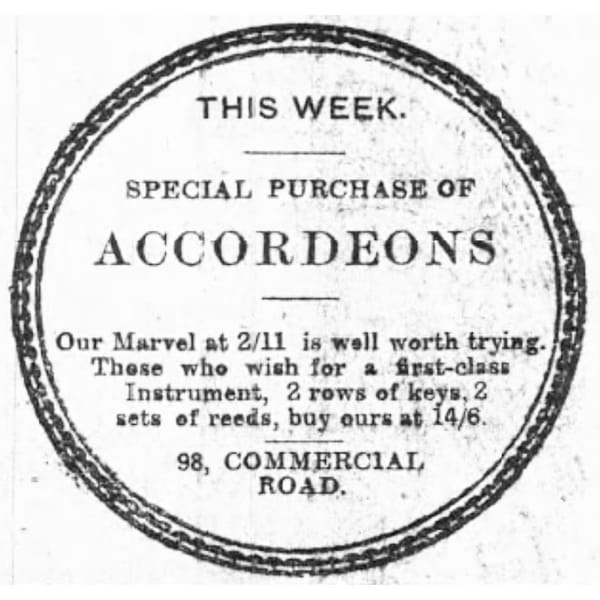
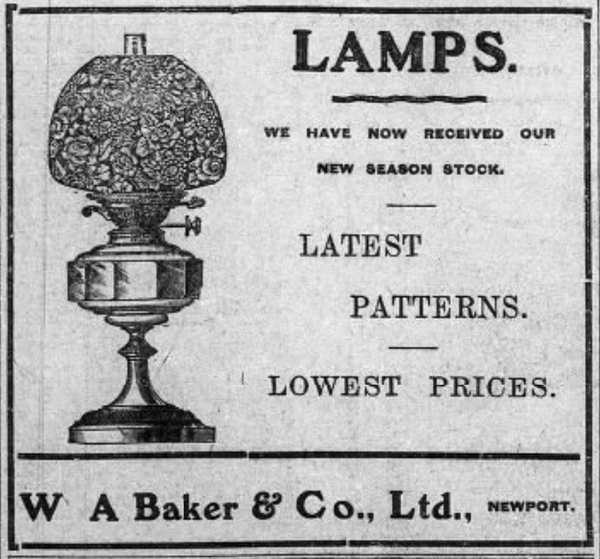


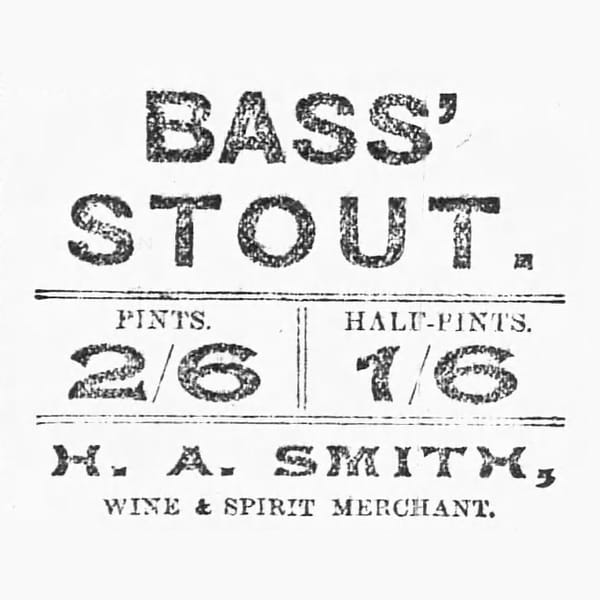
Member discussion